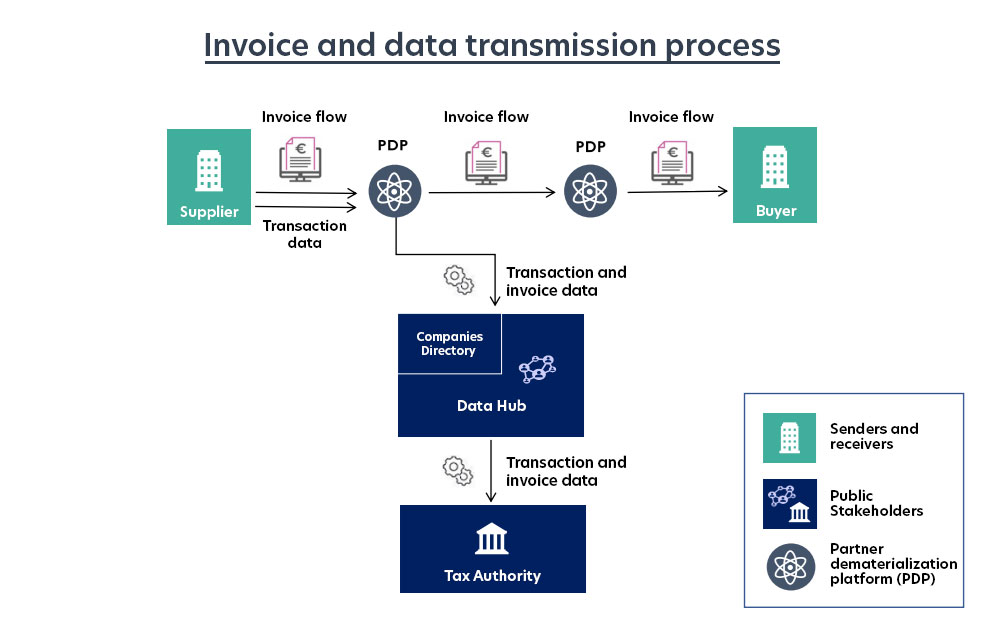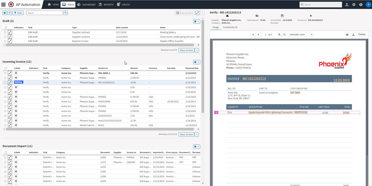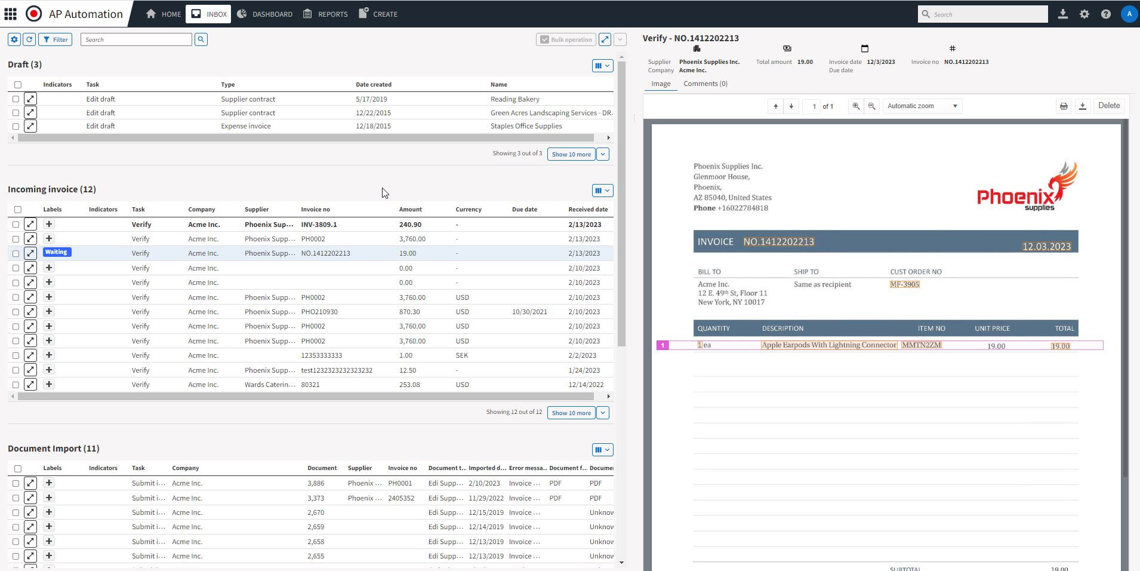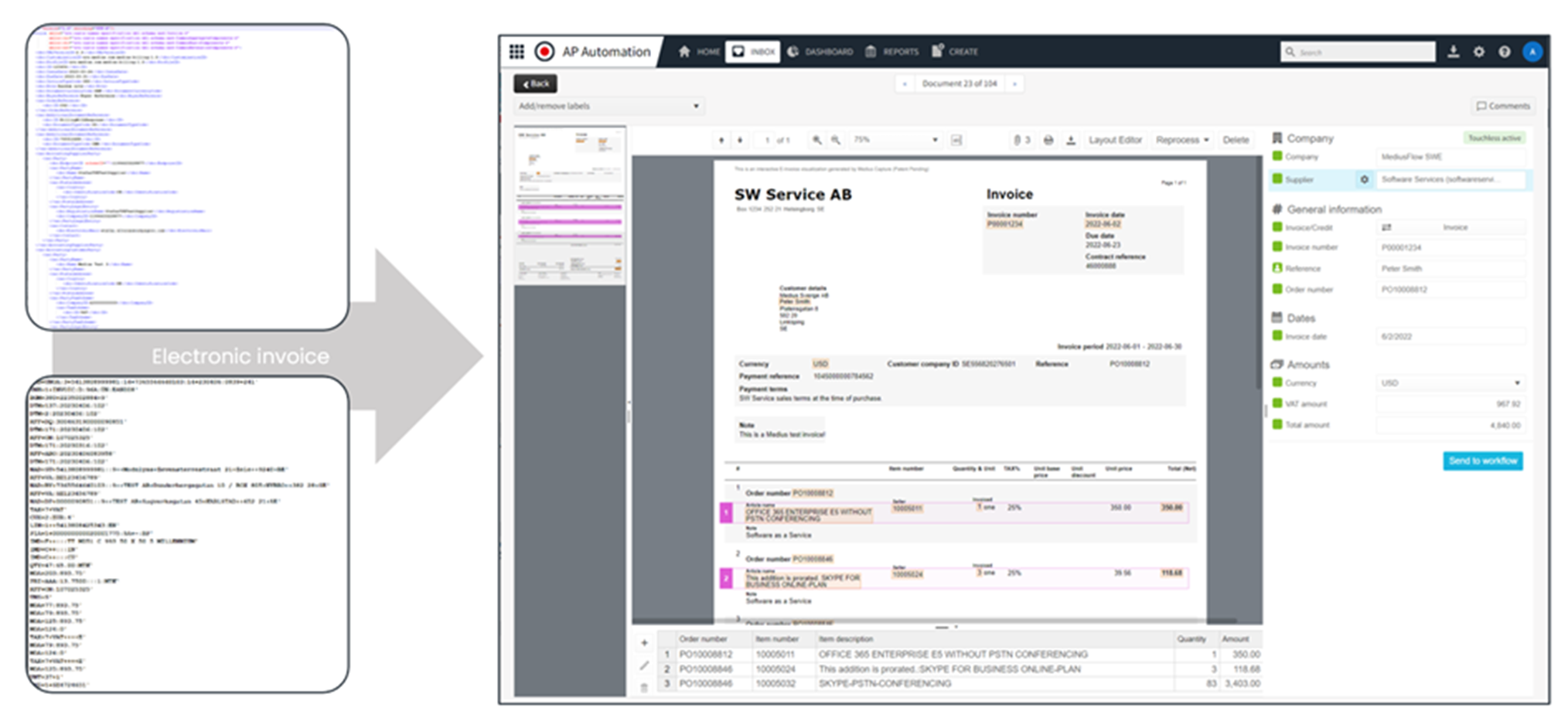Medius named an Approved
Platform (PA) to ensure compliance.
Medius helps businesses comply with the electronic invoicing requirement in France by being a pre-Approved Platform, formerly known as a Partner Dematerialization Platform (PDP), registered with the DGFIP.





